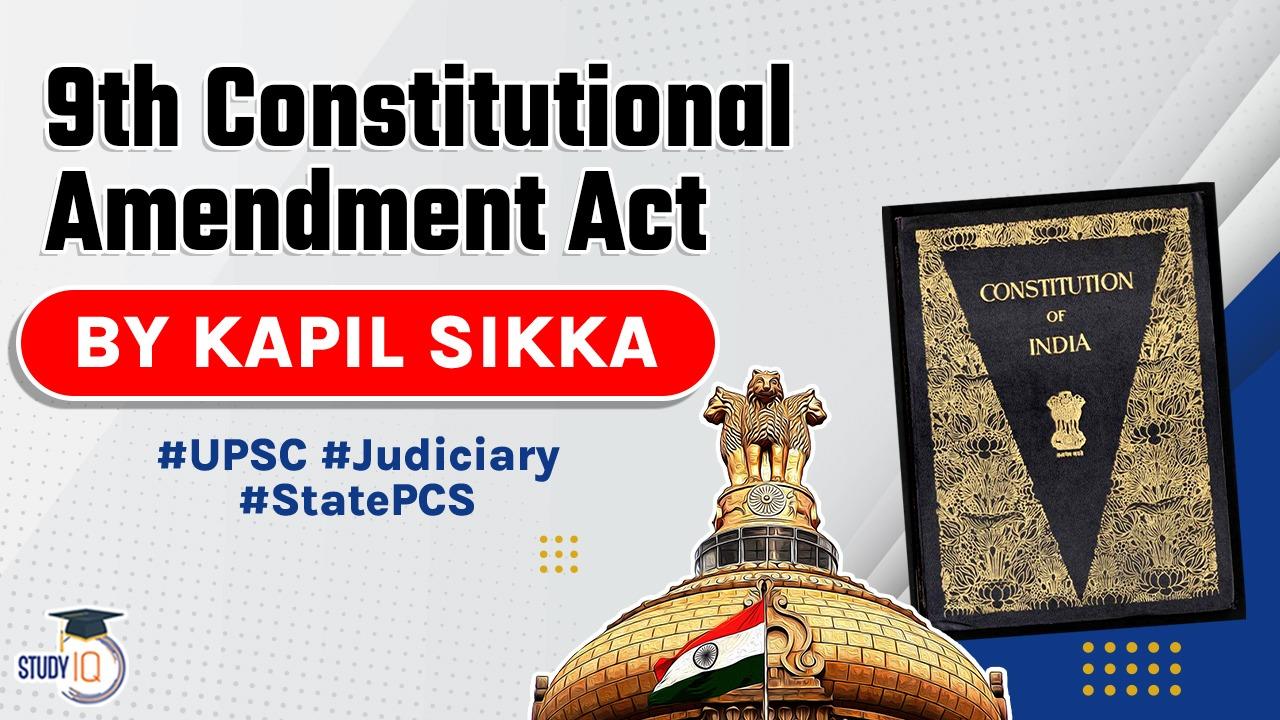Table of Contents
STATEMENT OF OBJECTS AND REASONS

- Agreements between the Governments of India and Pakistan dated 10th September, 1958, 23rd October, 1959, and 11th January, 1960, settled certain boundary disputes between the Governments of India and Pakistan
- relating to the borders of the States of Assam, Punjab and West Bengal, and the Union territory of Tripura.
- According to these agreements, certain territories are to be transferred to Pakistan after demarcation.
- In the light of the Advisory Opinion of the Supreme Court in Special Reference No. 1 of 1959, it is proposed to amend the First Schedule to the Constitution under a law relatable to article 368 thereof to give effect to the transfer of theses territories.
Nehru Noon Agreement 1958
- Both of them decided to exchange the territories
- Berubari Union 12 to be divided horizontally
- Enclave for Enclave to be done, to avoid any territorial loss
Ninth Amendment Act, 1960
-
- After the Nehru-Noon agreement was signed between India and Pakistan to divide the territory of Berubari Union, the Government of West Bengal opposed it.
- After this Union referred the matter to SC which held that the power of Parliament to diminish the area of a state (under Article 3) does not cover cession of Indian territory to a foreign country.

Judgement
- Preamble is not part of Constitution
- Article 1(3)(c ) only talks about acquiring the territories and not ceding any territory
- Article 368 gives power to amend the constitution, hence Article 1 can be amended by parliament
- But, amendment has to be brought vide article 368, only then land can be ceded to East Pakistan
Judgement’s Impact

- Hence, Indian territory can be ceded to a foreign state only by amending the Constitution under Article 368.
- Consequently, the 9th Constitutional Amendment Act (1960) was enacted.
Amendments:
- Facilitated the cession of the Indian territory of Berubari Union (located in West Bengal) to Pakistan as provided in the Indo-Pakistan Agreement (1958).
Constitutional Amendment Series Download Free PDF






















 WhatsApp
WhatsApp